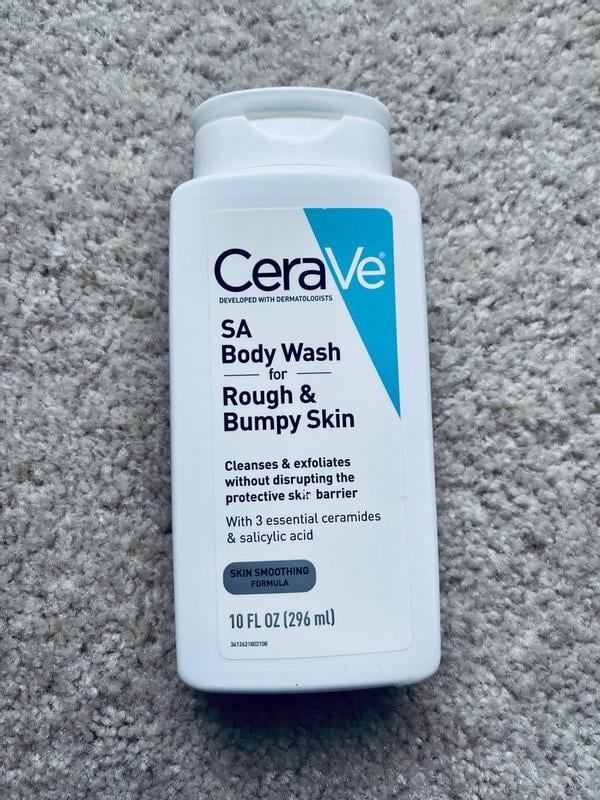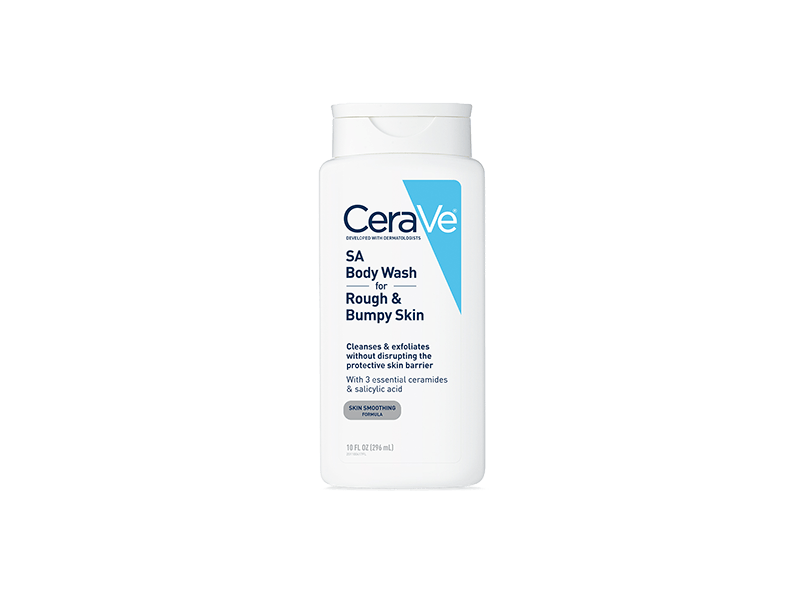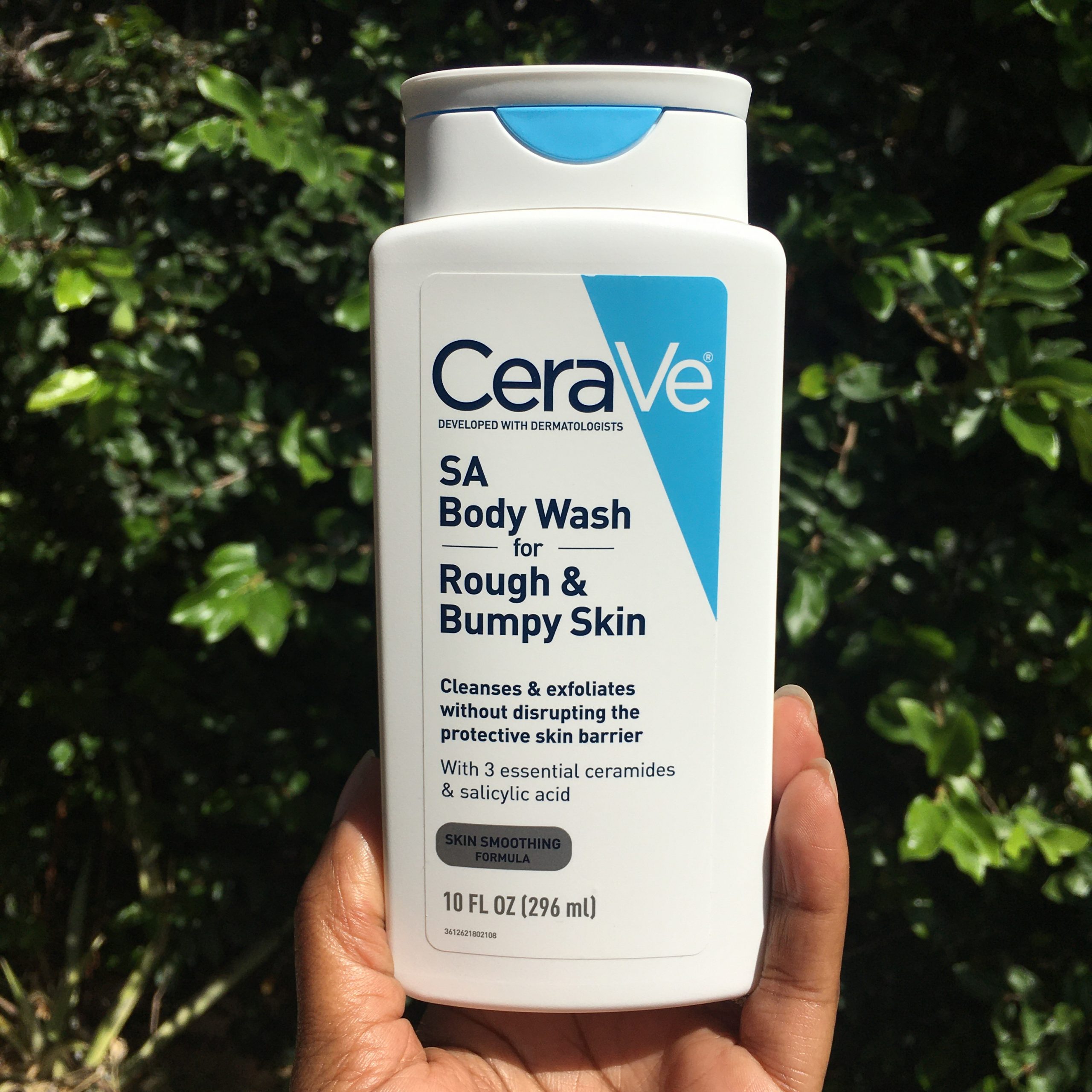Choosing the Best Food for Goldendoodle is like planning a gourmet feast for your four-legged friend. With a mix of both poodle and golden retriever DNA, Goldendoodles are a unique breed that requires a nutritious diet to keep their energy levels high and their coats shiny.
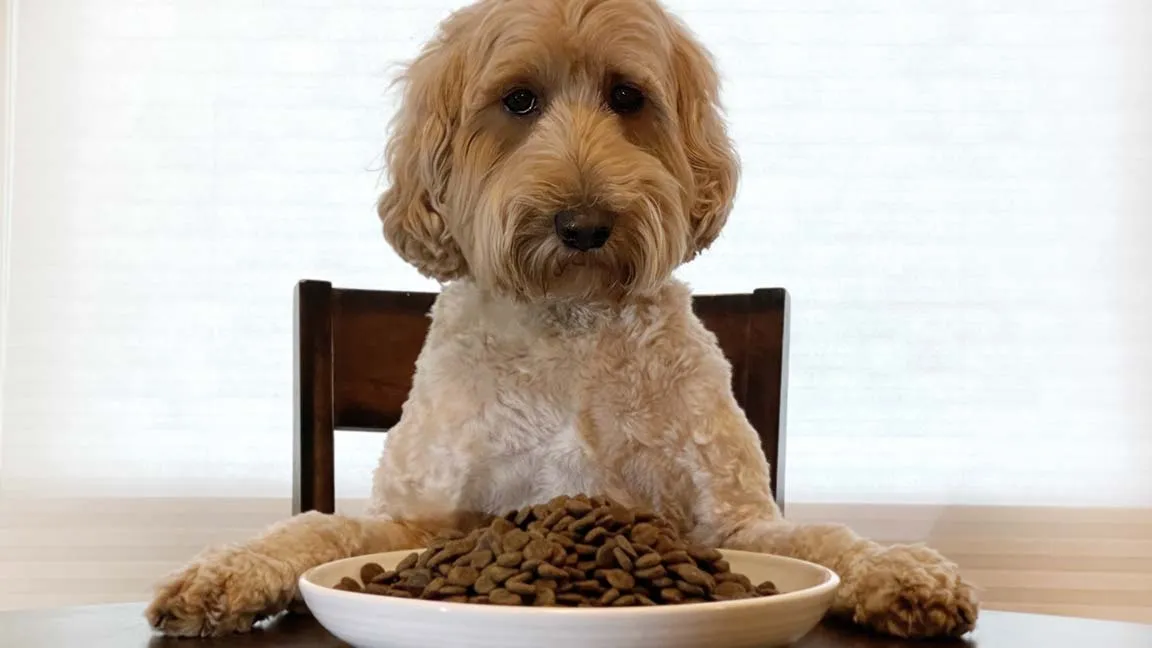
But with so many options on the pet store shelves, it can be tough to know where to start. Fear not, fellow pet-parents – by understanding the dietary needs of Goldendoodles and choosing the best foods for their health, you can feed your furry pal the royal treatment they deserve!
Best Food for Goldendoodle
Goldendoodles get their nutritional needs from both of their parent breeds. Being very energetic, they require good protein sources; having a pleasing coat requires omega fatty acids.
It is not uncommon for Goldendoodles to develop food sensitivities, and care must be taken in selecting ingredients accordingly.
Generally, these dogs will thrive on a diet containing 18-25% protein for adults and 22-28% for puppies, with moderate fat percentages of 10-15%.
The best foods for Goldendoodles will also have digestible carbohydrates along with vitamins and minerals for their active lifestyles.
The best food for Goldendoodles must be aligned with their particular nutritional requirements as well as their taste preferences. Here are some options:
1. Best Protein Sources for Muscle Maintenance
Protein represents the chief nutrient in an appropriate diet for a Goldendoodle, with quality dog food emphasising meat sources as primary ingredients.
Deboned chicken, turkey, lamb, and fish supply full amino acid profiles for the development and maintenance of lean muscle.
Animals are usually able to tolerate food that contains novel protein sources such as duck, venison, or bison; these protein sources thus create a low likelihood of allergic reactions in Goldendoodles with food sensitivities.
The food must provide a protein content of about 22-28% for pups and 18-25% for adults, with animal sources identified as such. That is far superior to any generic meat meal or by-products, which are nutritionally inferior.
2. Essential Fatty Acids for Coat and Skin Maintenance
The rich texture of the Goldendoodle coat requires generous amounts of omega-3 and omega-6 fatty acids to prevent matting and enhance skin health.
Added benefits, such as reduced inflammation and the promotion of a shiny coat with soft texture can be obtained from omega-3s, particularly the DHA and EPA found in foods containing salmon, herring, and flaxseed.
Chicken fat and sunflower oil are excellent sources of omega-6s, working synergistically with omega-3s. Many of the high-end food products for Goldendoodles now have extra fish or algal oil for the benefit of these vital nutrients.
The correct balance of these fatty acids helps in preventing dry, itchy skin commonly found in the breed and confers sheen and texture to its famous coat.
3. Digestible Carbohydrates for Sustainable Energy
While Goldendoodles do not require high amounts of carbohydrates, good carbohydrates serve as important energy sources and sources of dietary fibre.
Digestible carbohydrates such as sweet potatoes, peas, chickpeas, and whole oats give energy gradually and not in a rush, avoiding high blood sugar concentrations.
These complex carbs are matched well with the breed’s lifestyle and will allow them to maintain energy over long periods throughout the day.
Foods with high contents of corn, wheat, or soy should be avoided because these substances can trigger allergies in some Goldendoodles, possessing only limited nutritional advantages compared to good-quality alternatives.
4. Nutritional Considerations Related to Life Stages
The nutritional needs of Goldendoodle puppies are entirely different from those of adults or senior dogs.
Puppy formulas shall contain much higher levels of protein and fat, 22-28% protein and 12-18% fat, respectively, to support rapid growth as well as brain development, along with DHA for cognitive function.
Adult Goldendoodles thrive on balanced maintenance formulas, moderate in calorie content (18-25% protein and 10-15% fat), to maintain a healthy weight, while also sustaining their energy requirements.
Senior products frequently include joint-supporting ingredients such as glucosamine and chondroitin, with slight modifications to protein percentages to support ageing kidneys, without compromising muscle maintenance.
Dry Kibble or Wet Options
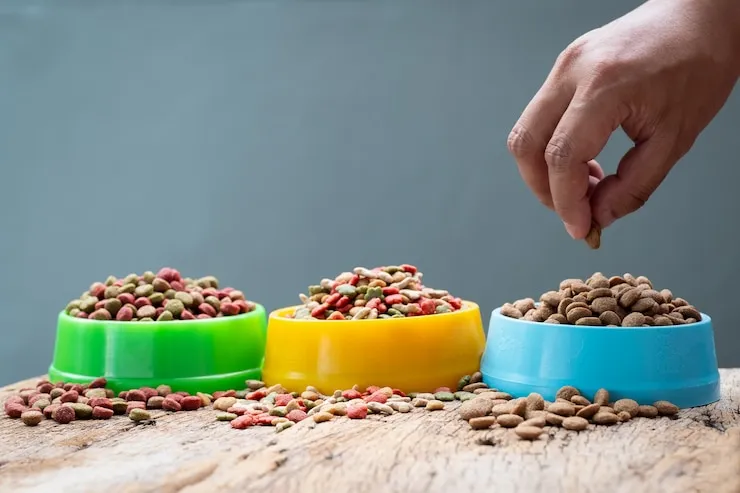
As a dry food, high-quality kibbles are still the most practical and most commonly used diet in Goldendoodles because of their crunchiness, which provides dental benefits by reducing tartar build-up.
Freeze-dried raw pieces or probiotics include these components in many premium kibble formulas today.
They can also be very beneficial for hydration or fussy eaters, but wet foods usually consist of higher fat content, thus requiring portion control in feeding.
With the increasing popularity of the mixed-feeding trend includes various advantages of both formats, such as the use of wet food as a topper to increase palatability while still obtaining the dental benefits and convenience of dry kibble as the food base.
Special Dietary Considerations for Sensitivities
Several food allergies are inherited in Goldendoodles from both parent breeds, thus necessitating special formulation considerations in their diets.
Limited-ingredient diets with novel protein and single carbohydrate sources are also valuable when attempting to identify and subsequently manage food allergies.
Breaking down the protein molecules in hypoallergenic diets with hydrolysed proteins will help in minimising the immune reactions for some sensitive dogs.
Owners should watch for symptoms of common allergies, such as chronic ear infections, licking of paws, or gastrointestinal upsets, which may indicate the need to make diet changes.
An elimination diet remains the most reliable method to identify specific food intolerances, often conducted by a veterinarian.
Feeding and Portion Control
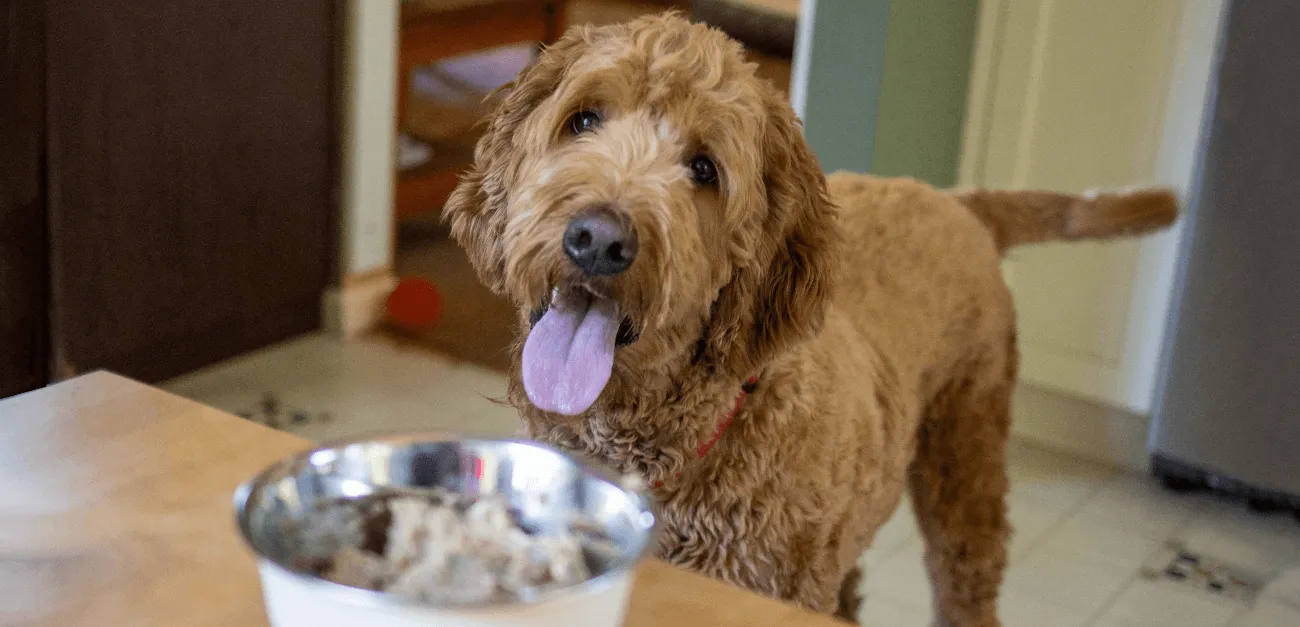
Goldendoodles should receive proper measured meals daily on a set schedule rather than being free-fed.
Adult Goldendoodles generally do best on two meals each day, while a puppy requires three to four smaller meals that would allow proper growth.
The quantity of food varies according to the dog’s age, activity level, and caloric density of the particular food being fed; hence, it is important to follow the instructions on the food package while consistently adjusting for the individual dog’s body condition.
Treats should not comprise more than 10% of the daily intake; therefore, the owner should consider them when calculating the dog’s total daily food intake to avoid obesity, which is a common problem for the breed that can lead to joint problems and other health issues.
Transitioning Food Safely
Whenever diet changes are made, a gradual transition over 7-10 days helps prevent digestive problems.
Over a few days, mix 25% of the new food into 75% of the Goldendoodle’s old food, after which equal portions can be given with a gradual increase of new food thereafter.
Sensitive Goldendoodles may, at times, do better with an even slower transition period of two weeks, especially when there is a change to higher protein or novel protein formulas.
While transitioning, take note of stool quality, appetite, and energy level to judge whether the transition is successful.
If there is any sign of gastrointestinal upset or signs of allergic reaction, consider slowing down the transition or seeking medical advice from the veterinarian.
The Owner Has to Look Much More Seriously

Beyond marketing claims in assessing the quality of Goldendoodle food. First, named animal proteins should be qualified as ingredients, and then good, digestible carbohydrates and fats.
Foods preserved with artificial or other negative terms like “meat by-products” should be avoided. The guaranteed analysis provided contains minimum prices of protein and fat, besides the maximum quantities of fibre and moisture content.
And finally, an AAFCO statement says it is the proper life stage and nutritional standards for the food.
Thus, by understanding these aspects of the label, owners will be able to make their comparisons between the products rationally and find the best possible selections for their Goldendoodles.
Common Nutritional Mistakes To Avoid
Good-meaning owners often make feeding mistakes that negatively affect the health of their Goldendoodles. Overfeeding leads to obesity and related pathologies in the joints, while underfeeding fails to provide the necessary energy.
Feeding table scraps creates pickiness and can introduce fats or foods that are otherwise unhealthy or intolerable.
Rapid variations in diet lead to an upset gut. The grain-free fad has led some owners to eliminate grains that otherwise would supply nutrients and fibre.
Understanding and avoiding these common mistakes keeps the Goldendoodle at an optimal weight and in good health at all times in life.
Creating a Long-Term Nutritional Plan
The long-term nutrition plan for any Goldendoodle gets to its warmth at various life stages and experiences that the dog might be going through at the moment.
Puppies are subject to constant reassessment as they grow, adults need to be watched out for to ensure they remain just right, while seniors can be given an altered kind of diet that meets ageing-related changes.
Keeping meticulous records of what the animal eats, its quantities, and the animal’s reactions helps determine what works best. Premium feeds may be dear, but they pay in terms of minimised veterinary fees and better quality of life for the dog.
A pre-emptive and informed approach to the diet of a Goldendoodle lays the groundwork for the long, healthy, and active lifestyle that it will need.
Conclusion
Awesome right? Goldendoodles deserve food that will keep them in tip-top shape, healthy, and happy. You can pamper your Goldendoodle if you know the dietary requirements of this unique breed and choose foods that are nutritious and tempting!
So keep your dog’s nutrition in mind when choosing food, and don’t shy away from trying something new here and there. Plenty of tail wags, cuddles, and all that Goldendoodle charm will be your reward!


